Jojoba
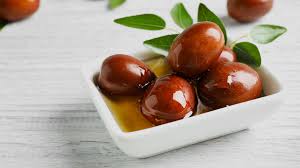
Jojoba (Simmondsia chinensis) is a perennial shrub native to the arid regions of the southwestern United States and northern Mexico. The plant is best known for its seeds, which are rich in a liquid wax commonly referred to as jojoba oil. Unlike most plant oils, jojoba oil is unique in its structure, closely resembling the natural oils (sebum) produced by human skin. This makes it an excellent moisturizer and an ideal ingredient in various cosmetic and skincare products. Jojoba oil is highly stable and resistant to rancidity, which contributes to its popularity in the beauty industry.
1. Size:
- The jojoba plant typically grows to a height of 1 to 2 meters (3 to 6 feet). It has a dense, bushy appearance with thick, leathery leaves that help it retain moisture in arid environments.
2. Color:
- The leaves of the jojoba plant are a pale, silvery-green color, while the seeds are brown and oval-shaped. Jojoba oil extracted from these seeds is a golden-yellow liquid, which turns clear when refined.
3. Texture:
- Jojoba oil has a smooth, silky texture that absorbs easily into the skin without leaving a greasy residue. The plant’s leaves are thick and leathery, adapted to conserve water in the desert heat.
4. Fragrance:
- Jojoba oil is typically odorless, making it an excellent carrier oil for essential oils and other fragrances in cosmetic formulations. When unrefined, it may have a very faint, nutty aroma.
5. Uses:
Jojoba oil is widely used as a moisturizer, makeup remover, and carrier oil in aromatherapy. It is highly valued for its ability to mimic the skin’s natural oils, helping to balance oil production and moisturize without clogging pores. It is also used to treat conditions like eczema, psoriasis, and dry skin.
Jojoba oil is a popular ingredient in shampoos, conditioners, and hair masks. It helps to moisturize the scalp, reduce dandruff, and strengthen hair, making it appear shinier and healthier. It can also be used as a treatment for dry or damaged hair.
Due to its stability and skin-friendly properties, jojoba oil is a common ingredient in lip balms, sunscreens, and other cosmetic products. It acts as an emollient, helping to soften and smooth the skin.
Traditionally, jojoba has been used by Native American tribes to treat wounds, sores, and skin infections. The oil’s anti-inflammatory properties make it useful in reducing redness and irritation.
6. Habitat:
- Jojoba is well adapted to survive in desert environments, thriving in sandy, well-drained soils with minimal water. It is commonly found in the Sonoran Desert, Mojave Desert, and other arid regions of North America.
7. Cultural and Spiritual Significance:
Jojoba has been used by Native American tribes for centuries. They extracted the oil from the seeds for use as a skin conditioner, hair treatment, and even as a remedy for various ailments. The seeds were also sometimes ground into a paste for treating burns and wounds.
In contemporary culture, jojoba oil is celebrated for its versatility and sustainability. It is often highlighted as a natural and eco-friendly alternative to synthetic ingredients in beauty and skincare products.
Spiritual Properties
Purification: Jojoba oil is sometimes used in spiritual practices for its purifying and healing properties. It is believed to cleanse the aura and promote emotional balance.
Healing: The soothing and moisturizing qualities of jojoba oil make it a symbol of healing and nurturing. It is often included in rituals and ceremonies aimed at promoting self-care and well-being.
Medicinal Properties
Anti-Inflammatory: Jojoba oil has natural anti-inflammatory properties, making it effective in treating skin conditions like acne, eczema, and psoriasis. It can help reduce redness, swelling, and irritation.
Antioxidant: Rich in vitamin E and other antioxidants, jojoba oil helps protect the skin from oxidative stress caused by free radicals. This makes it beneficial for preventing premature aging and maintaining skin health.
Antimicrobial: Jojoba oil has mild antimicrobial properties, which can help protect the skin from bacterial infections and promote wound healing.
Allergic Reactions
Jojoba is generally considered safe for topical use and is widely used in skincare and haircare products. However, it should not be ingested as it contains a compound called simmondsin, which can be toxic if consumed in large quantities.
Skin Sensitivity: Although jojoba oil is generally well-tolerated, some individuals with very sensitive skin may experience mild irritation or allergic reactions. Symptoms could include redness, itching, or rash.
Eye Irritation: When used near the eyes, jojoba oil may cause mild irritation or a burning sensation if it accidentally enters the eyes. It is recommended to apply it carefully and avoid the eye area.
Clogged Pores: While jojoba oil is non-comedogenic for most people, those with particularly oily skin may find that it occasionally clogs pores, leading to breakouts. It is advisable to patch-test before widespread use.
Interactions with Medications: Although rare, the use of jojoba oil on the skin may interfere with the absorption of topical medications. It is recommended to consult with a healthcare provider if you are using prescription skin treatments.

Ivy
Ivy Ivy (Hedera helix), also known as English Ivy, is a common evergreen climbing plant known for its distinctive lobed leaves and ability to cover
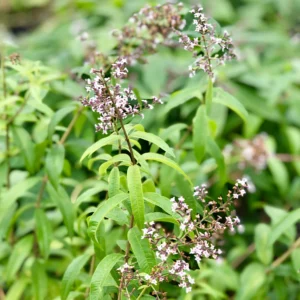
Lemon Verbena
Lemon Verbena Lemon Verbena is a perennial herb known for its intensely lemon-scented leaves and slender, graceful growth. It is cherished in both culinary and

Healing Bath for Emotional Trauma
Healing Bath for Emotional Trauma This bath is designed to aid in emotional healing and the release of negative feelings, making it ideal for times
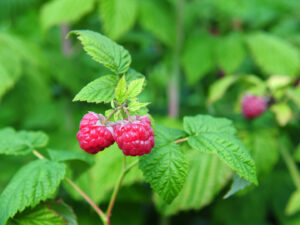
Raspberry Leaf
Raspberry Leaf Raspberry Leaf is a versatile herb that comes from the red raspberry plant. It has been used for centuries in traditional medicine for
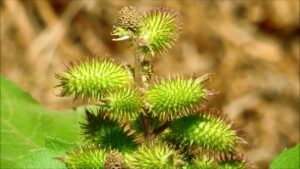
Xanthium
Xanthium Xanthium, commonly known as Cocklebur, is a herbaceous plant known for its spiky, bur-like seeds. It is a member of the Asteraceae family and
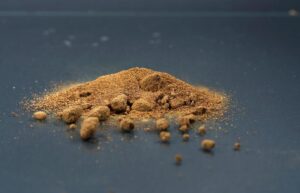
Frankincense Powder
Frankincense Powder Frankincense Powder, derived from the resin of the Boswellia tree, is a revered substance with a long history of use in spiritual, medicinal,